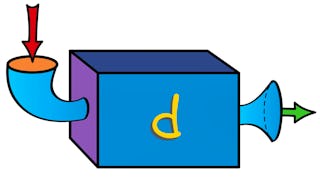Filter by
SubjectRequired
LanguageRequired
The language used throughout the course, in both instruction and assessments.
Learning ProductRequired
LevelRequired
DurationRequired
SkillsRequired
SubtitlesRequired
EducatorRequired
Results for "computational logic"
 Status: Free Trial
Status: Free TrialUniversity of California, Davis
Skills you'll gain: Network Analysis, Data Wrangling, Social Sciences, Graph Theory, Statistical Visualization, Data Visualization Software, Predictive Analytics, Scientific Methods, Simulations

Starweaver
Skills you'll gain: Matlab, Scientific Visualization, Simulation and Simulation Software, Mathematical Modeling, Engineering Analysis, Numerical Analysis, Integrated Development Environments, Data Structures, Scripting, Computer Programming, Debugging
 Status: Free Trial
Status: Free TrialJohns Hopkins University
Skills you'll gain: Graphing, Data Analysis, R Programming, General Mathematics, Mathematical Modeling, Algebra, Applied Mathematics, Calculus

Georgia Institute of Technology
Skills you'll gain: Experimentation, New Product Development, Product Development, Laboratory Experience, Manufacturing Processes, Engineering Design Process, Chemical Engineering, Process Development, Chemistry, Prototyping, Mechanical Engineering, Simulation and Simulation Software
 Status: Free Trial
Status: Free TrialMicrosoft
Skills you'll gain: Microsoft Azure, Serverless Computing, Cloud Development, Microsoft Power Automate/Flow, Event-Driven Programming, Cloud Applications, Business Process Automation, Cloud API, Application Programming Interface (API), GitHub
 Status: Free
Status: FreeUniversity of Pennsylvania
Skills you'll gain: Calculus, Applied Mathematics, Derivatives, Engineering Calculations, Advanced Mathematics, Economics

University of Leeds
Skills you'll gain: Programming Principles, Computational Logic, Python Programming, Computer Programming, Automation, Web Development, Algorithms, Computational Thinking, Debugging

Universiteit Leiden
Skills you'll gain: Health Disparities, Health Systems, Public Health, Health Care, Health Informatics, Health Policy, Preventative Care, Epidemiology, Continuous Quality Improvement (CQI), Risk Analysis
 Status: Free Trial
Status: Free TrialMicrosoft
Skills you'll gain: Back-End Web Development, Program Development, Algorithms, Integrated Development Environments, Programming Principles, Pseudocode, Debugging, Computational Thinking, Engineering Software, C# (Programming Language), Version Control, Software Engineering, GitHub, Git (Version Control System), Data Structures

University of Colorado Boulder
Skills you'll gain: Bash (Scripting Language), Scalability, Distributed Computing, Computer Systems, Big Data, Operating Systems, Performance Tuning, File Systems, Linux, Command-Line Interface, Programming Principles, OS Process Management
 Status: Free Trial
Status: Free TrialUniversity of California San Diego
Skills you'll gain: Bioinformatics, Laboratory Testing, Molecular Biology, Infectious Diseases, Network Analysis, Medical Science and Research, Computational Thinking, Data Mining, Biochemistry, Life Sciences, Scientific Visualization, Microbiology, Science and Research, Biology, Data Analysis Software, Pharmacology
 Status: Free Trial
Status: Free TrialDeep Teaching Solutions
Skills you'll gain: Deductive Reasoning, Critical Thinking, Cognitive flexibility, Problem Solving, Analytical Skills, Creative Thinking, Independent Thinking, Strategic Thinking, Innovation, Decision Making, Verbal Communication Skills, Communication
In summary, here are 10 of our most popular computational logic courses
- Social Network Analysis: University of California, Davis
- Matlab and Simulink Basics : Starweaver
- Precalculus: Relations and Functions: Johns Hopkins University
- Introduction to High-Throughput Materials Development: Georgia Institute of Technology
- Create Serverless Applications : Microsoft
- Calculus: Single Variable Part 2 - Differentiation: University of Pennsylvania
- An Introduction to Programming using Python: University of Leeds
- Population Health: Fundamentals of Population Health Management: Universiteit Leiden
- Foundations of Coding Back-End: Microsoft
- Introduction to High-Performance and Parallel Computing: University of Colorado Boulder










